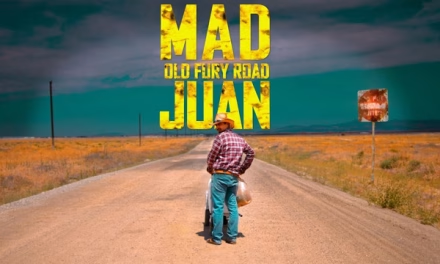by Gene Turnbow, station manager
 The 2015 Hugo Awards were announced at a ceremony in Spokane, Washington on August 21, 2015, shown on UStream and through CoverItLive.
The 2015 Hugo Awards were announced at a ceremony in Spokane, Washington on August 21, 2015, shown on UStream and through CoverItLive.
Usually SCIFI.radio just dutifully relays the information from the web site of the Hugo Awards, with no commentary. This time, however, something remarkable has happened, and it’s worth discussing. As previously mentioned, two faction groups decided that the Hugo nomination and judging boards have somehow become corrupt. To fix this, they attempted to redefine what everyone would be voting on this year, so that the underrepresented would have more of a voice – and more of a chance to win. By astonishing coincidence, these underrepresented voices and works happened to be exclusively their own.
We had all been holding our collective breath, waiting to find out how this would all play out. The Sad / Rabid Puppies managed to buy enough supporting memberships to get their slate of nominees on the ballots in five major categories. They could not, however, overcome the natural reluctance of about five and a half thousand voting memberships to select works, authors or editors whom they did not feel actually deserved a Hugo.
The general complaint, as I understand it, is that there is some sort of cabal that prevents the works of politically conservative authors from being selected for awards – and, that this injustice requires legal but highly unethical stuffing of ballot boxes so that the “correct” people win. It’s a turf war, in an environment where this context makes no sense.
Science fiction is not about political stance, or propaganda, or deep conspiracies flowing unseen beneath the surface. It is, ultimately, about exploring the question of what it means to be human, and what potential lays before us as a species. The entire point of science fiction is to quest with an open mind, exploring all possibilities, trying out different configurations of the future and the people inhabiting that future. What the Sad Puppies (and the more radical group, the Rabid Puppies) are saying is that their voices should be heard over all others. Instead of the entirety of science fiction fandom deciding which voices and ideas are important, the Puppies want to make that decision for us.
It all began about three years ago, when novelist Larry Correia noticed that women and minorities were becoming increasingly recognized for the value of their contributions in the field of science fiction. Last year, in particular, women and minorities swept the Hugos. The other significant voice in all this is Theodore Beale, who goes by the pen name “Vox Day” (“vox dei”, or “God’s Voice”), who is probably best known for his desire to reverse women’s suffrage and his firm belief that black people are “savages.”
Last April 4, the nominees were announced, and it created an immediate firestorm. Who the heck were these people in the first place? Few had ever heard of their work, and much of it was simply hard right-wing rhetoric masquerading as science fiction. The more distressing thing, apart from the fact that the ballot selections had apparently been hijacked, was that they crowded out legitimate entries. Even should any non-Puppy nominee win their category, what meaning would that award have if won by default? More than one author withdrew themselves from consideration after the slate had been published because of this.
Last night, however, we could all breathe a sigh of relieve – while it’s possible to game the nominations process, it’s not actually possible to rig the science fiction genre itself. In every category where the Puppies slate had overrun the legitimate nominations, the voting membership selected “No Award”. To be clear, there is no board of judges. These decisions were made by the voting membership as a whole, and not by some secret cabal. There is no left-wing agenda dictating who wins and who loses. Science fiction, as a concept, simply doesn’t work this way. That isn’t even what it’s for.
In all, no less than five categories tainted by the Puppies’ ballot rigging, ended up with no award being given. The voting membership wasn’t having any of it. To put this in perspective, in the 60 year history of Hugo Awards, there have been only five cases previously where no award was given. In a single night, that number is now doubled.
The Puppies, at this point, are spinning this as a victory. The claim now is that they knew they couldn’t win, and that they did all this to prove a point and to get this imaginary secret cabal to chew off their own legs rather than permit the Puppies to win. To keep their constituency polarized, they have invented a group name for everybody who is “not of the body”. They’re calling them “SJW’s”, or Social Justice Warriors. This is disingenuous at best, and implies that there was some sort of coordinated anti-Puppies political action, where none in fact existed. Anybody who speaks against the Puppies becomes tarred with this brush. It is an attempt to polarized and divide fandom over an issue that simply does not exist.
If you can’t get your stuff nominated, maybe it’s because not enough people actually like it. Burning the house down if you can’t get the cookies out of the jar is the response of a child, and a deranged one at that.
Will the Puppies try again next year? Given the amount of spew on the subject, I wouldn’t bet against it. One of the greater questions is how we stop this from happening again, and the WSFS spent a great deal of time debating that very question during business meetings at Sasquan this year. The Hugo Awards, while frequently political, are not at their heart about ideological discourse – despite the Puppies at least partially successful effort to make them so.
Here, then, are the award categories, the nominations, and who won each category.
5,950 valid final ballots were cast by the members of Sasquan. Per the WSFS Constitution, each category must have at least 25% (1,488 ballots) participation; otherwise “No Award” must be presented in this category. This did not happen in any category. In the list below, we show the number of ballots cast in that category.
2,122 valid nominating ballots (2,119 electronic and 3 paper) were received and counted from the members of Loncon 3, Sasquan, and MidAmeriCon II the 2014, 2015, and 2016 World Science Fiction Conventions.
After the ceremony, the Award Administrators released detailed voting breakdowns in each category and a list of the top 15 nominees in each category, along with the number of nominations received by each. Direct administrative questions about the 2015 Hugo Awards to the Sasquan Hugo Administration Subcommittee.
In some categories below, the members voted to give No Award in a category. This means no Hugo Award was presented in that category. In some categories, the members voted No Award ahead of some of the finalists. When this happened, we have listed No Award as if it was a finalist, with all finalists listed in the order in which they placed.
Best Novel (5653 final ballots, 1827 nominating ballots, 587 entries, range 212-387)
- The Three Body Problem, Cixin Liu, Ken Liu translator (Tor Books)
- The Goblin Emperor, Katherine Addison (Sarah Monette) (Tor Books)
- Ancillary Sword, Ann Leckie (Orbit US/Orbit UK)
- No Award
- Skin Game, Jim Butcher (Orbit UK/Roc Books)
- The Dark Between the Stars, Kevin J. Anderson (Tor Books)
Note: The Three-Body Problem was originally published in Chinese in 2008. The 2014 publication by Tor was the first English-language version, and therefore it is again eligible for the Hugos, according to section 3.4.1 of the WSFS Constitution.
Best Novella (5337 final ballots, 1083 nominating ballots, 201 entries, range 145-338)
- No Award
- “Flow”, Arlan Andrews, Sr. (Analog, 11-2014)
- Big Boys Don’t Cry, Tom Kratman (Castalia House)
- One Bright Star to Guide Them, John C. Wright (Castalia House)
- “The Plural of Helen of Troy”, John C. Wright (City Beyond Time: Tales of the Fall of Metachronopolis, Castalia House)
- “Pale Realms of Shade”, John C. Wright (The Book of Feasts & Seasons, Castalia House)
Note: Both Big Boys Don’t Cry and One Bright Star to Guide Them were previously published in much shorter versions, and were significantly expanded to novella-length in their 2014 publication. Following previous precedents, for the purposes of the 2015 Hugos they are designated as new works.
Best Novelette (5104 final ballots, 1031 nominating ballots, 314 entries, (72-267)
- “The Day the World Turned Upside Down”, Thomas Olde Heuvelt, Lia Belt translator (Lightspeed, 04-2014)
- No Award
- “The Triple Sun: A Golden Age Tale”, Rajnar Vajra (Analog, 07/08-2014)
- “Ashes to Ashes, Dust to Dust, Earth to Alluvium”, Gray Rinehart (Orson Scott Card’s InterGalactic Medicine Show, 05-2014)
- “The Journeyman: In the Stone House”, Michael F. Flynn (Analog, 06-2014)
- “Championship B’tok”, Edward M. Lerner (Analog, 09-2014)
Best Short Story (5267 final ballots, 1174 nominating ballots, 728 entries, range 132-226)
- No Award
- “Totaled”, Kary English (Galaxy’s Edge Magazine, 07-2014)
- “A Single Samurai”, Steven Diamond (The Baen Big Book of Monsters, Baen Books)
- “Turncoat”, Steve Rzasa (Riding the Red Horse, Castalia House)
- “On A Spiritual Plain”, Lou Antonelli (Sci Phi Journal #2, 11-2014)
- “The Parliament of Beasts and Birds”, John C. Wright (The Book of Feasts & Seasons, Castalia House)
Best Related Work (4901 final ballots, 1150 nominating ballots, 346 entries, range 206-273)
- No Award
- “The Hot Equations: Thermodynamics and Military SF”, Ken Burnside (Riding the Red Horse, Castalia House)
- “Why Science is Never Settled”, Tedd Roberts (Baen.com)
- Transhuman and Subhuman: Essays on Science Fiction and Awful Truth, John C. Wright (Castalia House)
- Letters from Gardner, Lou Antonelli (The Merry Blacksmith Press)
- Wisdom from My Internet, Michael Z. Williamson (Patriarchy Press)
Best Graphic Story (4412 final ballots, 785 nominating ballots, 325 entries, range 60-201)
- Ms. Marvel Volume 1: No Normal, written by G. Willow Wilson, illustrated by Adrian Alphona and Jake Wyatt, (Marvel Comics)
- Saga Volume 3, written by Brian K. Vaughan, illustrated by Fiona Staples (Image Comics))
- Rat Queens Volume 1: Sass and Sorcery, written by Kurtis J. Weibe, art by Roc Upchurch (Image Comics)
- Sex Criminals Volume 1: One Weird Trick, written by Matt Fraction, art by Chip Zdarsky (Image Comics)
- No Award
- The Zombie Nation Book #2: Reduce Reuse Reanimate, Carter Reid (The Zombie Nation)
Best Dramatic Presentation, Long Form (5240 final ballots, 1285 nominating ballots, 189 entries, range 204-769)
- Guardians of the Galaxy, written by James Gunn and Nicole Perlman, directed by James Gunn (Marvel Studios, Moving Picture Company)
- Captain America: The Winter Soldier, screenplay by Christopher Markus & Stephen McFeely, concept and story by Ed Brubaker, directed by Anthony Russo and Joe Russo (Marvel Entertainment, Perception, Sony Pictures Imageworks)
- Edge of Tomorrow, screenplay by Christopher McQuarrie, Jez Butterworth, and John-Henry Butterworth, directed by Doug Liman (Village Roadshow, RatPac-Dune Entertainment, 3 Arts Entertainment; Viz Productions)
- Interstellar, screenplay by Jonathan Nolan and Christopher Nolan, directed by Christopher Nolan (Paramount Pictures, Warner Bros. Pictures, Legendary Pictures, Lynda Obst Productions, Syncopy)
- The Lego Movie, written by Phil Lord & Christopher Miller, story by Dan Hageman, Kevin Hageman, Phil Lord & Christopher Miller, directed by Phil Lord & Christopher Miller (Warner Bros. Pictures, Village Roadshow Pictures, RatPac-Dune Entertainment, LEGO System A/S, Vertigo Entertainment, Lin Pictures, Warner Bros. Animation (as Warner Animation Group))
Best Dramatic Presentation, Short Form (4705 final ballots, 938 nominating ballots, 470 entries, range 71-170)
- Orphan Black: “By Means Which Have Never Yet Been Tried”, ” written by Graham Manson, directed by John Fawcett (Temple Street Productions, Space/BBC America)
- Doctor Who: “Listen”, written by Steven Moffat, directed by Douglas Mackinnon (BBC Television)
- Game of Thrones: “The Mountain and the Viper”, written by David Benioff & D. B. Weiss, directed by Alex Graves ((HBO Entertainment in association with Bighead, Littlehead; Television 360; Startling Television and Generator Productions)
- The Flash: “Pilot”, teleplay by Andrew Kreisberg & Geoff Johns, story by Greg Berlanti, Andrew Kreisberg & Geoff Johns, directed by David Nutter (The CW) (Berlanti Productions, DC Entertainment, Warner Bros. Television)
- Grimm: “Once We Were Gods”, written by Alan DiFiore, directed by Steven DePaul (NBC) (GK Productions, Hazy Mills Productions, Universal TV)
Best Editor, Short Form (4850 final ballots, 870 nominating ballots, 187 entries, range 162-279)
- No Award
- Mike Resnick
- Jennifer Brozek
- Bryan Thomas Schmidt
- Vox Day
- Edmund R. Schubert (Withdrew after ballot finalized)
Best Editor, Long Form (4907 final ballots, 712 nominating ballots, 124 entries, range 166-368)
- No Award
- Toni Weisskopf
- Sheila Gilbert
- Anne Sowards
- Jim Minz
- Vox Day
Best Professional Artist (4354 final ballots, 753 nominating ballots, 300 entries, range 118-188)
- Julie Dillon
- No Award
- Kirk DouPonce
- Alan Pollack
- Nick Greenwood
- Carter Reid
Best Semiprozine (3880 final ballots, 660 nominating ballots, 100 entries, range 94-229)
- Lightspeed Magazine, edited by John Joseph Adams, Stefan Rudnicki, Rich Horton, Wendy N. Wagner, and Christie Yant
- Strange Horizons, Niall Harrison, editor-in-chief
- Beneath Ceaseless Skies, edited by Scott H. Andrews
- No Award
- Abyss & Apex, Wendy Delmater editor and publisher
- Andromeda Spaceways In-Flight Magazine, Andromeda Spaceways Publishing Association Incorporated, 2014 editors David Kernot and Sue Bursztynski
Best Fanzine (3818 final ballots, 576 nominating ballots, 162 entries, range 68-208)
- Journey Planet, edited by James Bacon, Christopher J Garcia, Colin Harris, Alissa McKersie, and Helen J. Montgomery
- No Award
- Black Gate, edited by John O’Neill (Withdrew after ballot finalized)
- Tangent SF Online, edited by Dave Truesdale
- Elitist Book Reviews, edited by Steven Diamond
- The Revenge of Hump Day, edited by Tim Bolgeo
Best Fancast (3884 final ballots, 668 nominating ballots, 162 entries, range 69-179)
- Galactic Suburbia Podcast, Alisa Krasnostein, Alexandra Pierce, Tansy Rayner Roberts (Presenters) and Andrew Finch (Producer)
- Tea and Jeopardy, Emma Newman and Peter Newman
- No Award
- The Sci Phi Show, Jason Rennie
- Adventures in SciFi Publishing, Brent Bower (Executive Producer), Kristi Charish, Timothy C. Ward & Moses Siregar III (Co-Hosts, Interviewers and Producers)
- Dungeon Crawlers Radio, Daniel Swenson (Producer/Host), Travis Alexander & Scott Tomlin (Hosts), Dale Newton (Host/Tech), Damien Swenson (Audio/Video Tech)
Best Fan Writer (3884 final ballots, 777 nominating ballots, 265 entries, range 129-201)
- Laura J. Mixon
- No Award
- Jeffro Johnson
- Dave Freer
- Amanda S. Green
- Cedar Sanderson
Best Fan Artist (3476 final ballots, 296 nominating ballots, 198 entries, range 23-48)
- Elizabeth Leggett
- Spring Schoenhuth
- Ninni Aalto
- Steve Stiles
- Brad W. Foster
The John W. Campbell Award for Best New Writer (4338 final ballots, 851 nominating ballots, 220 entries, range 106-229)
Award for the best new professional science fiction or fantasy writer of 2013 or 2014, sponsored by Dell Magazines. (Not a Hugo Award, but administered along with the Hugo Awards.)
- Wesley Chu*
- No Award
- Kary English*
- Eric S. Raymond
- Jason Cordova
- Rolf Nelson
*Finalists in their 2nd year of eligibility.
- CoverItLive text-based coverage of the 2015 Hugo Awards Ceremony
- LiveStream video coverage of the 2015 Hugo Awards
- UStream video coverage of the 2015 Hugo Awards Nomination Announcement
SCIFI.radio is listener supported sci-fi geek culture radio, and operates almost exclusively via the generous contributions of our fans via our Patreon campaign. If you like, you can also use our tip jar and send us a little something to help support the many fine creatives that make this station possible.













Sad to see the commentary on this event. Denying that the Hugos have been hijacked for purely ideological reasons for the past few years is to fly against reality. Numerous authors of all political stripes have spoken out against the rigid ideological purity test currently in place and propagated by publishers like Tor. However, I appreciate the honesty as it’s nice to know how the other side thinks.
For our part, our observation is that there seems to be a logical disconnect in the Puppies’ argument – the Puppies engineered a hijacking specifically because they were not allowed to push their narrow slate of nominees, and in so doing arbitrarily removed works that would normally have bubbled to the top as selected by the voting public. To claim that a mass of more than five thousand uncoordinated voters suddenly decided that the Hugos should be about ideology rather than good writing, after sixty years of the Hugos being awarded for excellence in science fiction literature freely crossing all boundaries of gender, race and philosophy, flies in the face of logic.
I think we can safely put the conspiracy idea to rest. Really. If there was one, one would think somebody would have said they were in on it by now, and how it went down – or are we to believe that five thousand cats can all be herded in the same direction from some hidden high command at once? Since when has fandom marched to the tune of a single drummer? Any fan would know that that just doesn’t happen. We can’t even make up our minds where to go for dinner.
That confusion is well over. The only task now is to keep moving forward.